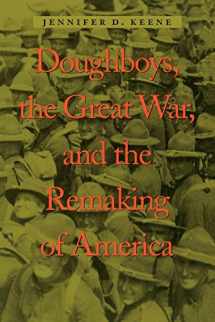
Doughboys, the Great War, and the Remaking of America (War/Society/Culture)
Book details
Summary
Description
How does a democratic government conscript citizens, turn them into soldiers who can fight effectively against a highly trained enemy, and then somehow reward these troops for their service? In Doughboys, the Great War, and the Remaking of America, Jennifer D. Keene argues that the doughboy experience in 1917-18 forged the U. S. Army of the twentieth century and ultimately led to the most sweeping piece of social-welfare legislation in the nation's history-the G. I. Bill. Keene shows how citizen-soldiers established standards of discipline that the army in a sense had to adopt. Even after these troops had returned to civilian life, lessons learned by the army during its first experience with a mass conscripted force continued to influence the military as an institution. The experience of going into uniform and fighting abroad politicized citizen-soldiers, Keene finally argues, in ways she asks us to ponder. She finds that the country and the conscripts-in their view-entered into a certain social compact, one that assured veterans that the federal government owed conscripted soldiers of the twentieth century debts far in excess of the pensions the Grand Army of the Republic had claimed in the late nineteenth century.


We would LOVE it if you could help us and other readers by reviewing the book
Book review





